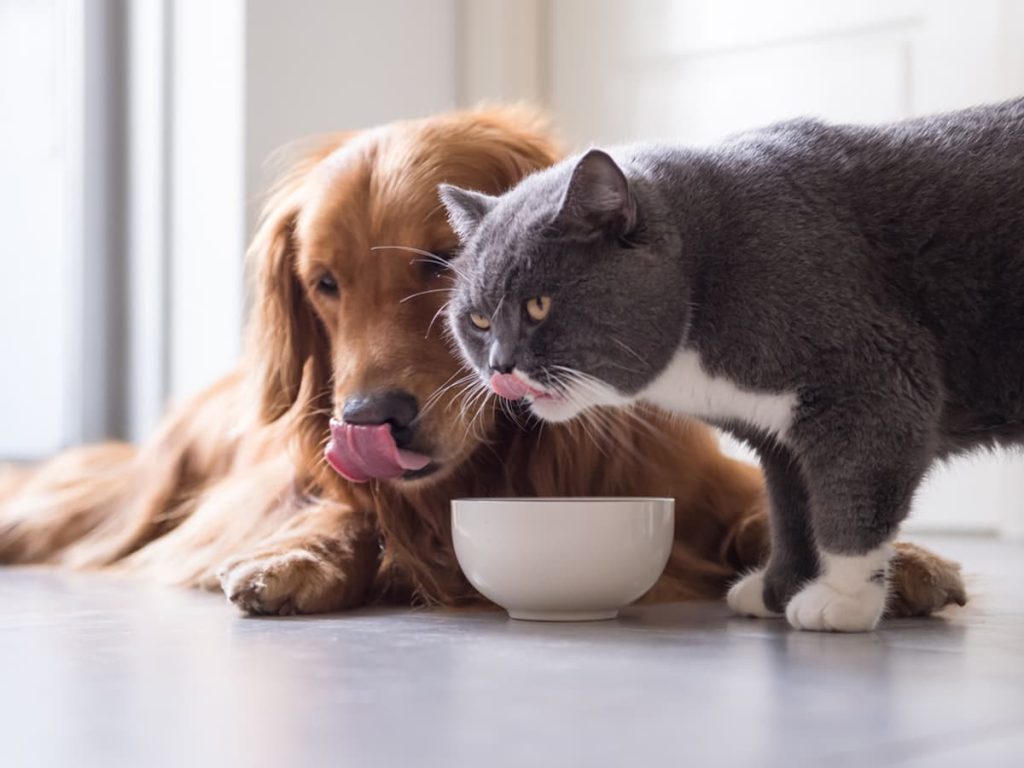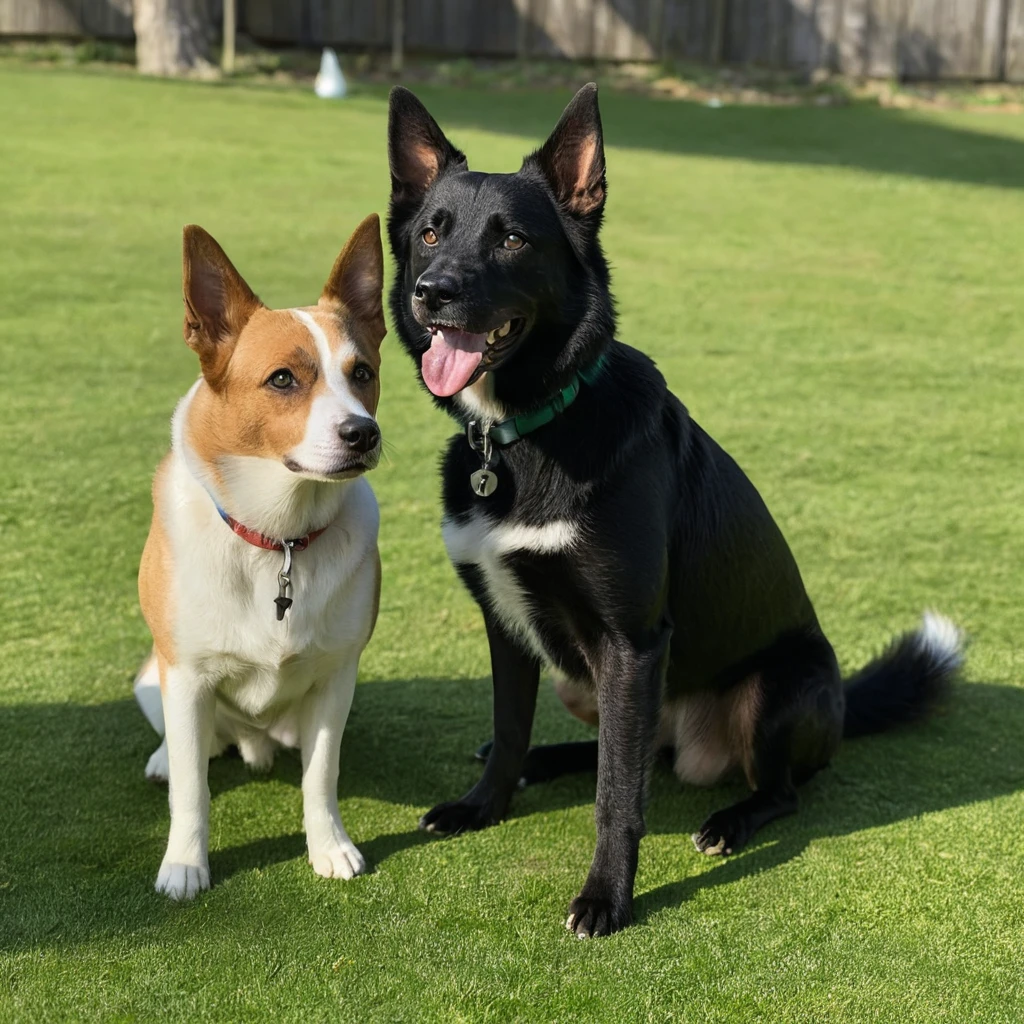can dogs eat cat food in 2025
can dogs eat cat food
Introduction: Can Dogs Eat Cat Food?
When you have both dogs and cats in your home, you may wonder if it's okay for your dog to snack on your cat's food. While dogs can technically eat cat food, it's not recommended as a regular part of their diet. Dogs and cats have very different nutritional needs, and feeding your dog cat food could lead to health issues in the long run. In this comprehensive review, we'll dive deep into why it's important to feed your dog a diet tailored to their species and what you can do if your dog happens to munch on cat food.
This article will explore everything you need to know about the differences between dog and cat food, the risks of letting your dog eat cat food regularly, and how to ensure your dog gets the proper nutrition they need.
1. The Nutritional Differences Between Dog and Cat Food
The key to understanding why dogs shouldn’t eat cat food regularly lies in the nutritional makeup of the food. Both dogs and cats are carnivores, but their dietary requirements are not the same. Here’s why:
- Protein Content: Cat food is generally higher in protein compared to dog food because cats are obligate carnivores, meaning they require a diet that consists almost entirely of meat. Dogs, on the other hand, are omnivores and need a balanced diet of protein, fats, and carbohydrates.
- Taurine: Cats require taurine, an essential amino acid, in their diet. Dog food does not contain the same high levels of taurine, as dogs can synthesize this on their own, while cats cannot.
- Fat Content: Cat food also tends to have more fat than dog food. While some fat is good for dogs, too much can lead to obesity and pancreatitis.
- Vitamins and Minerals: Cat food is enriched with different vitamins and minerals that cater to a cat's needs, such as Vitamin A. Dogs produce their own Vitamin A, so they don’t need as much in their food. Feeding your dog a diet rich in cat food could lead to vitamin toxicity.
2. Why Dogs Should Not Eat Cat Food Regularly
While the occasional snack won’t harm your dog, regularly eating cat food can have detrimental effects on your dog’s health. Here are a few reasons why this should be avoided:
- Nutrient Imbalance: As discussed earlier, cat food has higher protein and fat content, which may lead to weight gain and nutrient imbalance in dogs over time.
- Digestive Issues: Dog food contains fibers and carbohydrates that help with digestion, whereas cat food lacks these components. This could lead to digestive problems in dogs such as diarrhea or vomiting.
- Health Risks: The high fat and protein content in cat food can lead to more serious issues such as pancreatitis in dogs. This condition can be painful and may require immediate medical attention.
3. What Happens if Dogs Eat Cat Food? Potential Health Risks
If your dog consumes cat food occasionally, you might not see any immediate problems. However, continuous consumption can lead to several health risks:
- Pancreatitis: A diet too high in fat can cause pancreatitis in dogs, an inflammation of the pancreas that can lead to severe symptoms like vomiting, abdominal pain, and lethargy.
- Obesity: The high-fat content in cat food can lead to obesity in dogs, especially if your dog isn’t very active.
- Kidney Issues: Long-term consumption of cat food, which is often higher in protein, could strain your dog’s kidneys over time.
4. What to Do If Your Dog Accidentally Eats Cat Food
If your dog has snuck a bite of cat food, there’s no need to panic. Most dogs won’t suffer any serious issues from a one-time indulgence. However, here are a few steps you can take:
- Monitor Your Dog: Keep an eye on your dog for any signs of digestive upset, such as diarrhea, vomiting, or discomfort. If symptoms persist for more than 24 hours, contact your veterinarian.
- Hydration: Ensure your dog drinks plenty of water, especially if they have a sensitive stomach, as cat food is denser than dog food and may take longer to digest.
- Prevent Recurrence: Take steps to keep your cat’s food out of reach from your dog. Elevating the cat’s food bowl or feeding them in a separate room can help prevent your dog from having access to it.
5. How to Prevent Dogs from Eating Cat Food
Dogs are often opportunistic eaters, so it’s important to take preventive measures to stop them from accessing cat food. Here’s how you can make sure your dog doesn’t eat your cat’s food:
- Feed in Separate Areas: Keep the cat's food in an elevated place that your dog can't reach, or feed them in different rooms.
- Use Pet-Feeding Stations: Consider getting a cat-feeding station or a baby gate that allows only your cat to access their food.
- Supervise Mealtimes: If your dog is persistent in trying to access the cat’s food, you may need to supervise their mealtimes to ensure they stick to their own food.
6. Healthier Alternatives to Cat Food for Dogs
If your dog is drawn to cat food because of its meat-heavy aroma, there are plenty of healthier alternatives you can provide:
- High-Protein Dog Treats: Offer your dog treats that are high in protein but still balanced for their dietary needs.
- Dog-Approved Meat Snacks: Choose lean meats like chicken, turkey, or beef that are cooked and free of seasoning. These will satisfy your dog’s cravings for a meaty snack without the risks associated with cat food.
7. Can You Occasionally Give Cat Food to Dogs?
In small amounts and on rare occasions, cat food is not toxic to dogs. However, it should never replace a dog’s regular meals. As a treat, it's fine to give them a small amount, but it should never become a habit.

8. A Balanced Diet for Dogs: Why It’s Important
Dogs thrive on a balanced diet that includes protein, fat, carbohydrates, vitamins, and minerals. A commercial dog food diet is designed to meet these needs. Ensuring your dog gets the right balance of nutrients helps maintain their weight, energy levels, and overall health.
9. Conclusion: Ensuring a Healthy and Happy Diet for Your Dog
While dogs can eat cat food in small quantities without immediate harm, it’s not a good long-term dietary choice. A proper dog-specific diet is essential for their health and wellbeing. By keeping your dog’s diet balanced and preventing them from indulging in cat food too often, you’ll help ensure they lead a long, healthy life.
FAQs: Common Questions About Dogs and Cat Food
1. Can cat food harm my dog in the long run? Yes, long-term consumption of cat food can lead to health issues such as pancreatitis, obesity, and kidney problems.
2. What should I do if my dog prefers cat food over their dog food? Try introducing high-quality, protein-rich dog food or dog treats to satisfy their cravings. You can also consult your vet for advice on switching to a more appealing dog food.
3. How can I keep my dog from eating my cat’s food? Feed your cat in an area that is out of your dog’s reach, such as on a countertop or in a separate room. You can also invest in feeding stations designed to prevent dogs from accessing cat food.
4. Is there any benefit to feeding my dog cat food? No, cat food does not offer any specific benefits to dogs. It is formulated for cats, and dogs require a different balance of nutrients.
5. Can dogs eat wet cat food? Dogs can eat wet cat food occasionally, but it is not recommended regularly due to the higher fat and protein content that could be harmful to dogs.




